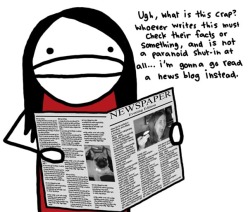Welcome to Yale’s blog.
This week’s readings are about ‘A return to practice: reclaiming journalism as public conversation’, ‘Citizen Journalism and Audience-Generated Content’, and ‘Putting the public back into journalism’.
I will start from chapter 3 and will cover to chapter 11. In chapter 3, Michael Meadows claims that, the Western form of modern journalism emerged around the turn of the century and it called ‘public’. Moreover, when people tend to gather in public houses like pubs and cafes, these things became important meeting places of ideas because journalists gather information from people and report public conversations. As technology developed, journalism has been transformed into something else. Carey suggests important elements that influenced the movement of journalism away from its earlier, publicly accountable form and it created the professional communicator, too.
The emergence of modern journalism practice as ‘independent’ was a natural outcome of this historical process. It developed from the earlier idea of media institutions being seen as ‘the fourth estate’. What is fourth estate? The fourth estate is the public press, referred to as a collective and encompassing photographers, journalists, television broadcasters, and radio announcers, among others (Wisegeek 2011). I think many people generally agree that the fourth estate has immense political and social power, thanks to the fact that the press can be used to shape societies while imparting news of note and commentary of interest. Because the fourth estate is recognised as such an important body, many nations have laws which protect the rights of the press. Moreover, while this and other critiques of modern journalism and its adoption of notions such as the fourth estate as I mentioned earlier, objectivity, and professionalism is lucid and savage. Maybe it needs to be re-examined in terms of how it has shaped modern journalism.
Move on to ‘The media as a cultural resource’ section, I realised that journalists and journalism played a crucial role in this process of ‘imagining’ and in my opinion, through the cultural form of print technology, it just continue to make a significant contribution to the way in which we ‘imagine’ ourselves and our life. Also, it is possible to define ‘how power is imbricated with knowledge and gives a place to notions of commentary, judgement and criticism.
Actually, I want to focus more on Chapter 4, because they discuss about citizen journalism and provided Korea as an example.
 So I can talk more about it. What is citizen journalism? It is the concept of members of the public “playing an active role in the process of collecting, reporting, analysing and disseminating news and information”. I want to say it is the intent of this participation is to provide independent, reliable, accurate, wide-ranging and relevant information that a democracy requires. However, citizen journalism has arisen in environments where audience felt neglected by mainstream media. For example, South Korea think media ignore them that is why young Korean found it made more sense to write for a news media with a strong national brand and formidable presence in the news market than scribble their anger in a puny blog (Min 2007). Bowman and Willis (2005) states that they conclude that people are interested in participating and contributing to subjects that traditional media ignore or cover inadequately. Furthermore, the public was turning to the Internet is response to what they saw as an impoverished and corporate-dominated public sphere. Nowadays, it is being explored via new media such as the use of mobile phones. Because mobile phones have the potential to transform reporting and places the power of reporting in the hands of the public.
So I can talk more about it. What is citizen journalism? It is the concept of members of the public “playing an active role in the process of collecting, reporting, analysing and disseminating news and information”. I want to say it is the intent of this participation is to provide independent, reliable, accurate, wide-ranging and relevant information that a democracy requires. However, citizen journalism has arisen in environments where audience felt neglected by mainstream media. For example, South Korea think media ignore them that is why young Korean found it made more sense to write for a news media with a strong national brand and formidable presence in the news market than scribble their anger in a puny blog (Min 2007). Bowman and Willis (2005) states that they conclude that people are interested in participating and contributing to subjects that traditional media ignore or cover inadequately. Furthermore, the public was turning to the Internet is response to what they saw as an impoverished and corporate-dominated public sphere. Nowadays, it is being explored via new media such as the use of mobile phones. Because mobile phones have the potential to transform reporting and places the power of reporting in the hands of the public.
This is end of my first blog 🙂 Hope everyone enjoy as well.
Please feel free to comment on my post.
Thank you everyone and HAVE A GREAT DAY !!!! ♥
<References>
- Bowman, Shayne and Willis, Chris (2005). “The Future is Here, but do News Media Companies See It” in Nieman Reports, Winter 2005; 5-9.
- Min, Jean (2007). E-mail interview 11 January 2007 and personal interview with Quin, 21 March 2007, in Seoul.
- Wisegeek (2011). What is the Fourth Estate?, viewed 18 May, <http://www.wisegeek.com/what-is-the-fourth-estate.htm>.

Hi Yale 🙂
Thanks for sharing on the current state of citizen journalism in south korea. Well, as far as i have seen, young koreans are pretty much engaged in citizen journalism! I have seen so much post and discussions on leeminho, snsd and other pop culture-related news! Given that Korea has one of the highest internet penetration rate, i guess it just allows more freedom of information doesn’t it?
Hi Joleen 🙂 Thank you for ur precious comment on my post. yeh i also did not know korea also have citizenship journalism as well before i read reading haha. yeh it’s called Ohmynews..
Hello yale!
Yes, I agree that technological uplifts together with citizen journalism has indeed changed the lives of many.
Citizen journalism surface partly because mainstream media does not have much audience participation and that, audiences are not heard. However, do you think that citizen journalism is too subjective? Is it a good thing to have too many voices?
Hello Yale!
Nice post! Yes! Korea’s citizenship journalism is rather famous, if I ma not wrong it’s called Oh my news! Right? Will be excited to hear you talk more about it!